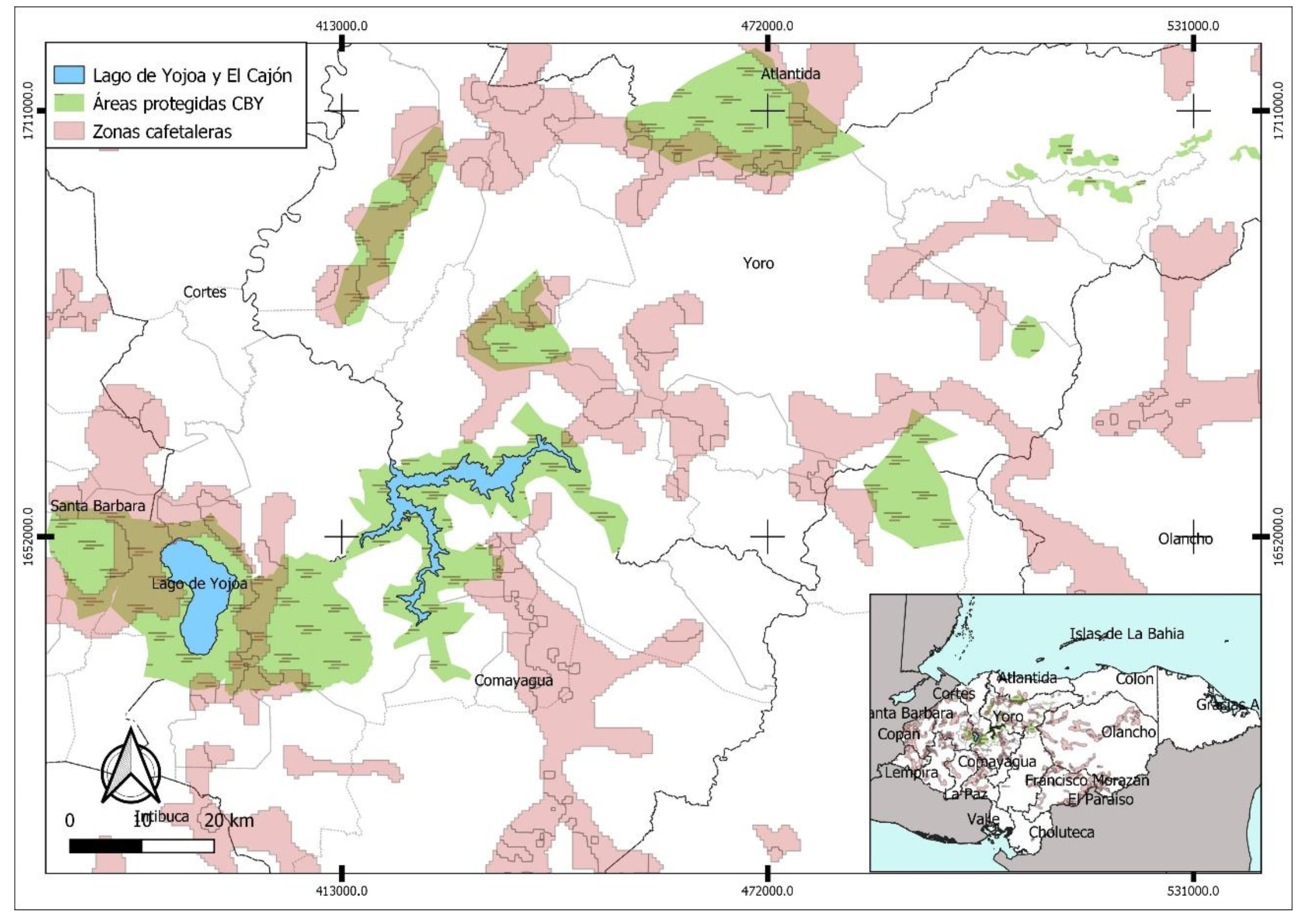The Yoro Biological Corridor

Location of the Yoro Biological Corridor (green and red areas in the map)
Honduras, a highly biodiverse mesoamerican country, is also the fifth major coffee-producing nation in the world. Efforts to conserve and promote biodiversity have been focused on the designation and management of protected areas, yet their connectivity and persistence in mountainous regions––and those of the numerous species of flora, fauna and other organisms inhabiting those areas––are threatened by the expansion of coffee plantations. Coffee systems, however, could be allies of the highly biodiverse systems upon which crop productivity relies.
The Yoro Biological Corridor is an initiative to counteract the destruction of tropical cloud forests, support coffee sustainability, and promote human and more-than-human wellbeing in Honduran mountains. The corridor aims to connect several protected areas in the country, including Reserva de Recursos El Cajón and Área de Uso Múltiple Lago de Yojoa, and extends to 12,603 km2 between the Atlántida,Comayagua, Francisco Morazán, Olancho, Colón, Cortés and Santa Bárbara departments. The strategy is to increase the area of forest and its connectivity by promoting environmentally-friendly practices in in private coffee farms and industries. This “Yoro Model” combines public-private initiatives to promote innovative technologies, territorial designs, practices and attitudes influencing coffee production and processing to reach markets valuing sustainable practices and biodiversity conservation to meet the Sustainable Coffee Challenge.
To know more about the Yoro Biological Corridor, please visit this site.